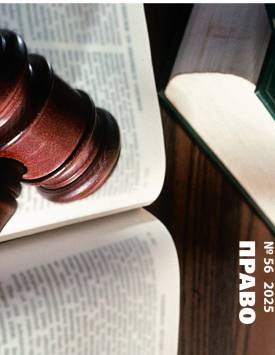Acts of substantive and procedural legislation as a form of streamlining the procedural norms of Belarusian transport law
The article focuses on determination of optimal legal forms of establishment of transport the law procedural norms on judicial and related protection of rights. It is noted that current procedural regulations of transport law are both in the acts of substantive and procedural legislation. Doctrinal ideas about reasons for registering the civil procedural rules in the normative legal acts with substantive component are analyzed. Factors causing registration of transport law procedural rules in substantive legislation acts in control state are defined. It is determined that since the pre-revolutionary period the transport law has developed both in forms of substantive and procedural law. The author agrees with the opinion of scientists that the reason of the civil procedural norms pertaining to substantive legal acts is their inseparable connection with the substantive legislation. It is suggested that logical connections between the norms that cannot be comprehended apart from each other should be determined by the contact norms. As the reason for transport law procedural regulations pertaining to acts with substantive law component, the author determines the connections between elements of procedural norms with mixed composition. They are characterized by the hypothesis pertaining to the field of substantive law, and the qualifying element - disposition - to the field of procedural law. Logical connections between substantive and procedural norms of transport law, as well as elements of norms with mixed composition in conjunction with norm-making technique requirements assurance determine optimality of establishment of procedural rules of transport law in acts with substantive component. In some cases the only reason for their being registered in these legal forms is normmaking technique requirements assurance. It is argued that introduction into codified civil procedural legislation of the norms on transportation cases consideration procedure in their control state or with minor reworking is not expedient. Transposition is not excluded when the norms are qualitatively reworked, in cases of unification of rules governing judicial and related protection of rights on certain types of transport, where it is possible, development of rules with civil procedural structure that establish the order of civil legislation for transport cases, if needed. The author declares no conflicts of interests.
Keywords
procedural norms, civil procedure legislation, transport legislation, connections between the norms, structure of normAuthors
| Name | Organization | |
| Sigaeva Tatyana A. | Belarusian State Economic University | 296405@tut.by |
References

Acts of substantive and procedural legislation as a form of streamlining the procedural norms of Belarusian transport law | Tomsk State University Journal of Law. 2025. № 56. DOI: 10.17223/22253513/56/12
